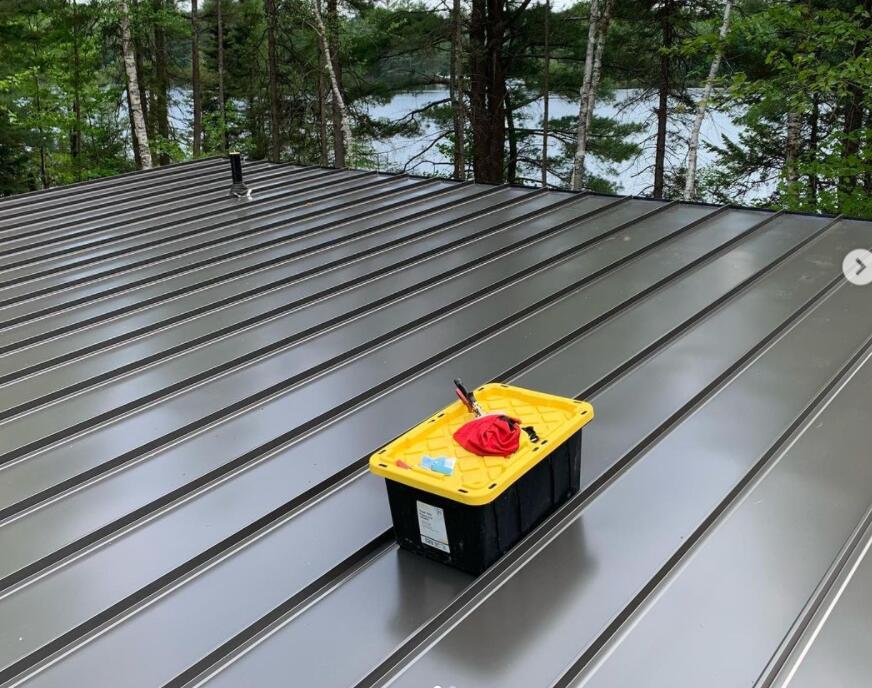Efficient Manufacturing Solutions with Advanced Standing Seam Roll Forming Technology
Understanding Standing Seam Roll Formers A Comprehensive Overview
In modern construction, architectural design and efficiency are crucial elements that determine a building's success. One of the key components in this context is the roofing system, and standing seam metal roofs have gained immense popularity due to their durability, aesthetic appeal, and energy efficiency. At the heart of this roofing innovation lies the standing seam roll former, an essential machine used in the manufacturing of these sophisticated roofing panels.
What is a Standing Seam Roll Former?
A standing seam roll former is a specialized piece of equipment designed to produce standing seam metal roofing panels. These machines utilize a continuous roll-forming process, wherein flat metal sheets are transformed into finished panels through a series of rollers that shape the metal into the desired profile. The term standing seam refers to the raised seams that interlock the panels, providing a unique and attractive appearance while offering enhanced protection against water infiltration.
The Importance of Roll Forming in Roofing
Roll forming is a highly efficient manufacturing technology that allows for the rapid production of metal roofing components with precision and consistency. One of the primary advantages of standing seam roll forming is its ability to create long, continuous lengths of roofing panels, minimizing the number of seams and potential leak points. This seamless design not only improves water resistance but also enhances the overall durability and lifespan of the roofing system.
Key Components of a Standing Seam Roll Former
A typical standing seam roll former consists of several essential components that work in harmony to produce high-quality roofing panels
2. Rollers The core of the roll former, these specially shaped rollers progressively shape the metal sheets into standing seam profiles. Each roller is designed to create a specific part of the seam, and their precise alignment is crucial for achieving the desired thickness and shape of the final product.
standing seam roll former

3. Cutting Mechanism After the panels are formed, they need to be cut to the required lengths. Most standing seam roll formers are equipped with automated cutting systems that ensure accuracy and efficiency.
4. Control System Modern roll formers come with advanced control systems that allow operators to adjust settings, monitor production speeds, and maintain quality control throughout the manufacturing process.
Benefits of Using Standing Seam Roll Formers
Utilizing standing seam roll formers in roofing applications offers several advantages
- Cost Efficiency By producing panels in-house, contractors can save on material costs and reduce waste. The high production speed of roll formers also leads to shorter installation times, lowering labor costs.
- Customization Roll formers can be adjusted to create various profiles, enabling manufacturers to produce customized solutions that meet specific architectural requirements.
- Durability Standing seam metal roofs are known for their resistance to harsh weather conditions. The continuous panels produced by roll formers reduce the risk of leaks and provide long-lasting protection.
- Aesthetic Appeal The clean lines and sleek finish of standing seam roofs enhance the visual appeal of any building, making them a preferred choice for both residential and commercial projects.
Conclusion
In summary, standing seam roll formers play a pivotal role in the production of modern metal roofing systems. Their efficiency, precision, and ability to create durable and visually appealing products make them an invaluable asset in the construction industry. As architectural trends continue to evolve, the demand for advanced manufacturing technologies like standing seam roll formers will only grow, ensuring that many more buildings benefit from their innovative designs and robust performance.
-
Roof Panel Machines: Buying Guide, Types, and PricingNewsJul.04, 2025
-
Purlin Machines: Types, Features, and Pricing GuideNewsJul.04, 2025
-
Metal Embossing Machines: Types, Applications, and Buying GuideNewsJul.04, 2025
-
Gutter Machines: Features, Types, and Cost BreakdownNewsJul.04, 2025
-
Cut to Length Line: Overview, Equipment, and Buying GuideNewsJul.04, 2025
-
Auto Stacker: Features, Applications, and Cost BreakdownNewsJul.04, 2025
-
Top Drywall Profile Machine Models for SaleNewsJun.05, 2025








